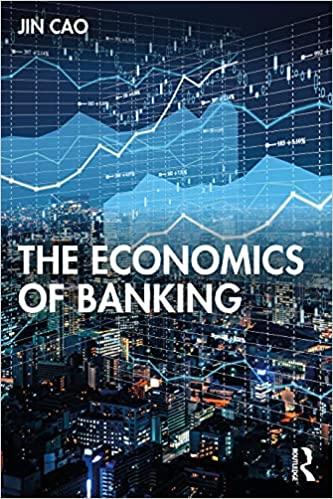Consider an economy that is populated by a group of investors and a banker. They are all
Question:
Consider an economy that is populated by a group of investors and a banker. They are all risk neutral and do not discount the future. The economy lasts for three periods:
- In \(t=0\), the banker raises deposits from investors to finance one project; then she decides in which project to invest. There are two types of projects available: transparent and opaque ones-denoted by type \(t=T, O\), respectively, and there is a finite number of projects for each type. Besides choosing the type of investment project, the banker can also choose the project's probability \(p, 0
- In \(t=2\), the project matures, allowing the banker to extract a return of \(R_{H} / R_{L}\left(R_{H}>R_{L}\right)\) under \(H / L\) state, respectively. If investors take over the project before they are repaid, they are only able to generate \(\beta R_{H} / \beta R_{L}(0<\beta<1)\) return, due to inalienable human capital characterized in Section 2.4, based on Hart and Moore (1994). To avoid the bank's incentive to renegotiate, after the state of the world is revealed, deposit contract gives investors the privilege to run on the bank, i.e., demand their deposits - with the promised return that is set in \(t=1\)-back any time before the deposit contracts are repaid. If the banker cannot meet investors' demand, she has to declare bankruptcy and let investors take over the project.
(a) Consider the investors' problem in \(t=1\), given that they have learned whether the banker has chosen a transparent or an opaque project in \(t=0\).
i. If the banker has chosen a transparent project in \(t=0\), how much return will investors require for \(t=2\) ? What are the payoffs for investors and the banker, respectively?
ii. If the banker has chosen an opaque project in \(t=0\), how much return will investors require for \(t=2\) ? Will there be a bank run in \(t=2\), after the state of the world is revealed?
What are the expected payoffs for investors and the banker, respectively, in \(t=1\) ?
(b) Based on your results in the previous questions, show that the banker's optimal choice in \(t=0\) is to choose an opaque project.
(c) Show how the banker's choice on \(p\) in \(t=0\) affects the likelihood of a bank run in \(t=2\). Is there any optimal choice for the banker on the value of \(p\) ?
Step by Step Answer:






